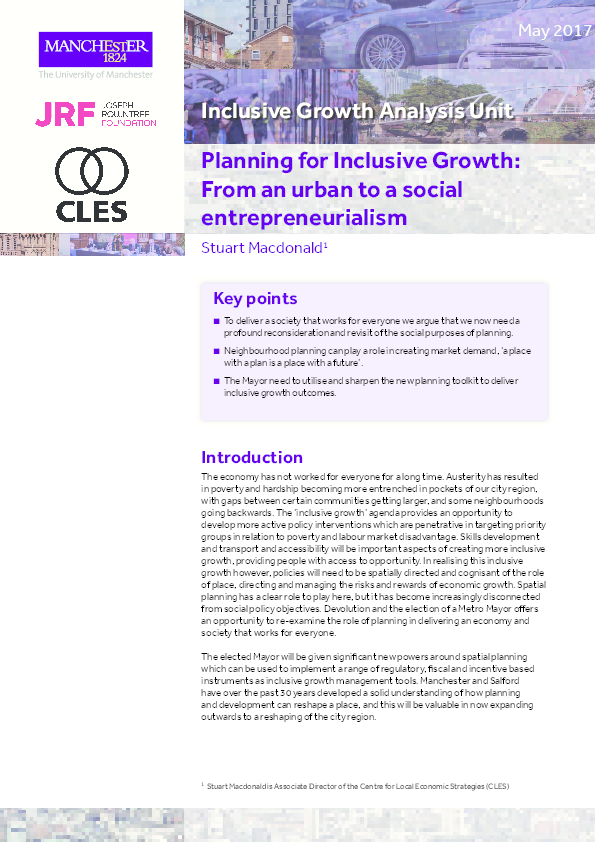Planning for social good
The economy has not worked for everyone for a long time. Austerity has resulted in poverty and hardship becoming more entrenched in pockets of our city region, with gaps between certain communities getting larger, and some neighbourhoods going backwards. The ‘inclusive growth’ agenda provides an opportunity to develop more active policy interventions which are penetrative in targeting priority groups in relation to poverty and labour market disadvantage. Skills development and transport and accessibility will be important aspects of creating more inclusive growth, providing people with access to opportunity. In realising this inclusive growth however, policies will need to be spatially directed and cognisant of the role of place, directing and managing the risks and rewards of economic growth. Spatial planning has a clear role to play here, but it has become increasingly disconnected from social policy objectives. Devolution and the election of a Metro Mayor offers an opportunity to re-examine the role of planning in delivering an economy and society that works for everyone.
This paper starts to explore how the Metro Mayor can use new powers over planning to make a step change towards a more progressive approach that delivers greater social good and more inclusive growth. If we want an economy that works for all, we will need to plan for it, and we should start by placing a greater focus on the outcomes we desire from our planning system.
Related publication:



